When researching an unrelated topic, the librarian came across a reference to Greek manuscripts in the Burnam Library. They were not known to previous or current staff, so it was a mystery. The librarian contacted the Archives and Rare Books Library in the hopes that they might be there, and eureka! They had mistakenly not been transferred during the move of classics materials from ARB to the Burnam Library more than three years ago. The boxes contain some 10 very rare Greek newspapers of the Greek resistance movement published during WWII and shortly thereafter, such as Οδηγός των αδελφοτήτων της Ε.Α. and Η Αλληλεγγύη from 1945, Ελεύθερη σκέψη (όργανο του Εθνικού Κομιτάτου Νέων) from 1942, Ελεύθερη Ελλάδα (όργανο της Κ.Ε. του Εθνικού Απελευθερωτικού Μετώπου) from 1943, and Φωνή της Αλλελλεγγύης (όργανο του Παρατήματος Μακεδονίας και Θράκης…) from January 1, 1946.
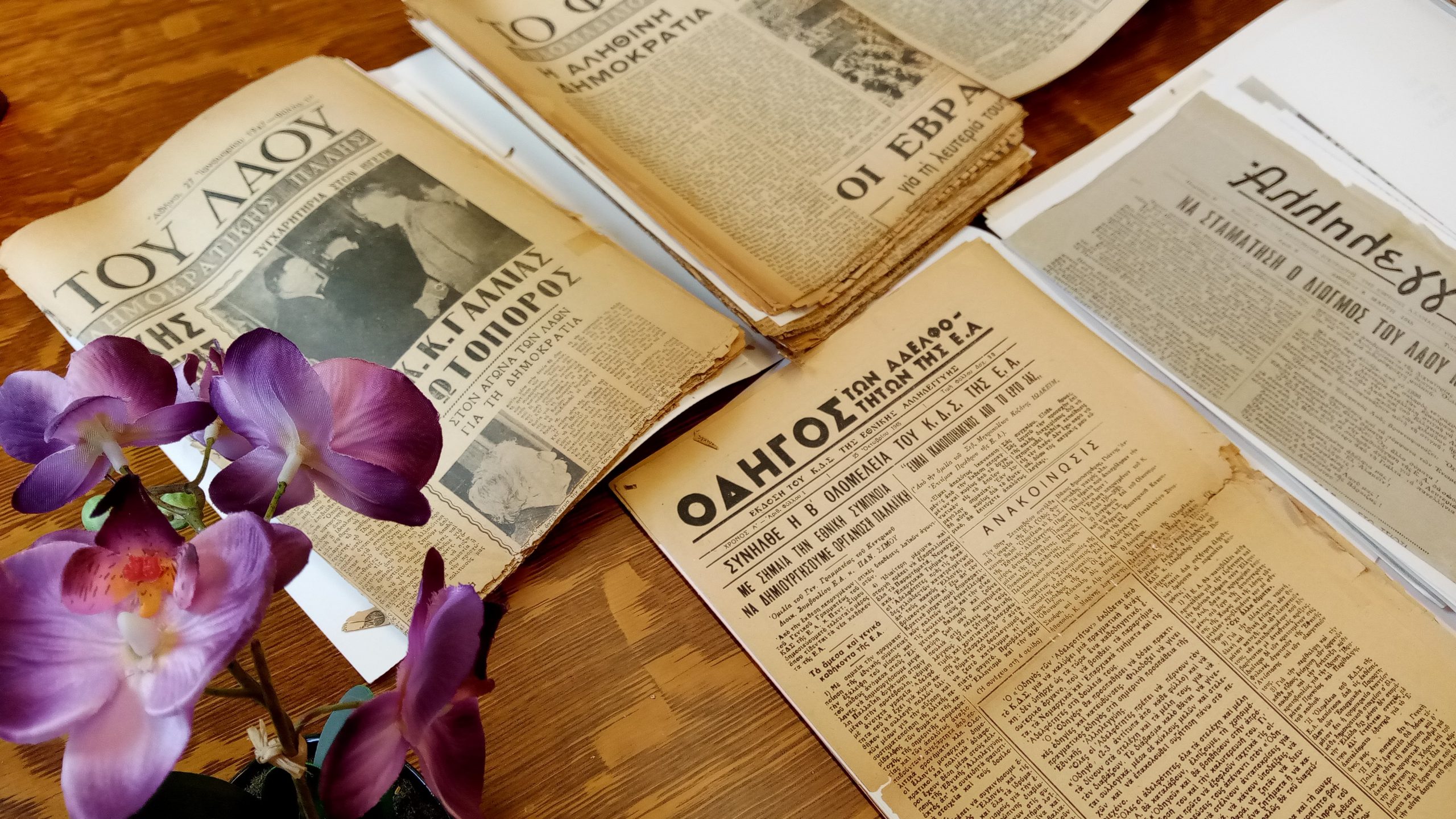
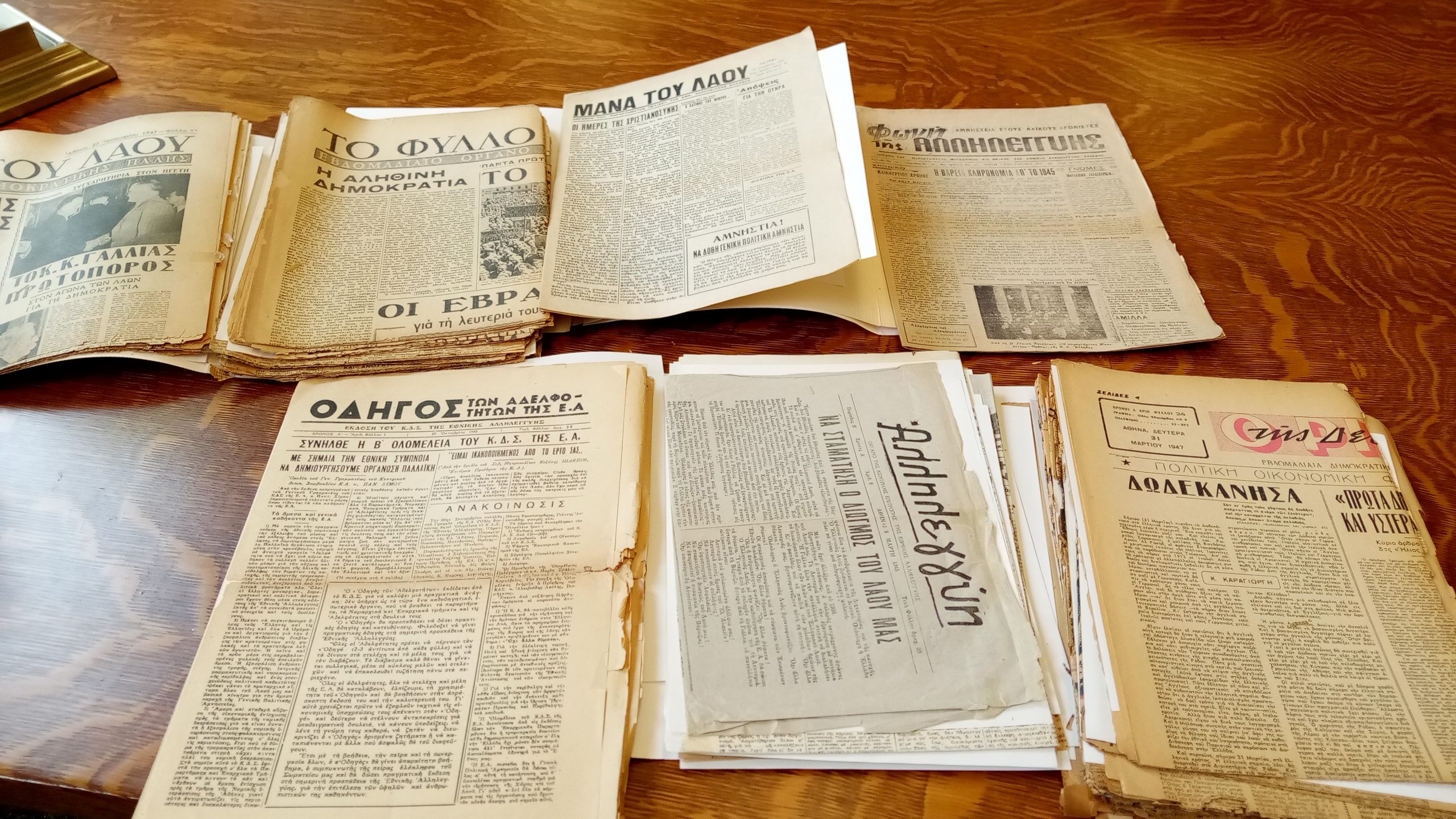
If at all possible, with respect to their brittle condition, they will be added to the periodicals currently being digitized by the John Miller Burnam Classics Library, thanks to a grant from the Office of Research, and several other institutions in the U.S. and abroad as part of the “Greek Digital Journal Archive (GDJA)” initiative https://libraries.uc.edu/libraries/classics/collections/mod-greek-journal/greek-digital-journal-archive.html . See also the new blog about the Classics Library’s map collection, in part produced based on American aerial photographs from WWII, vital for the work of American aid workers following the War.
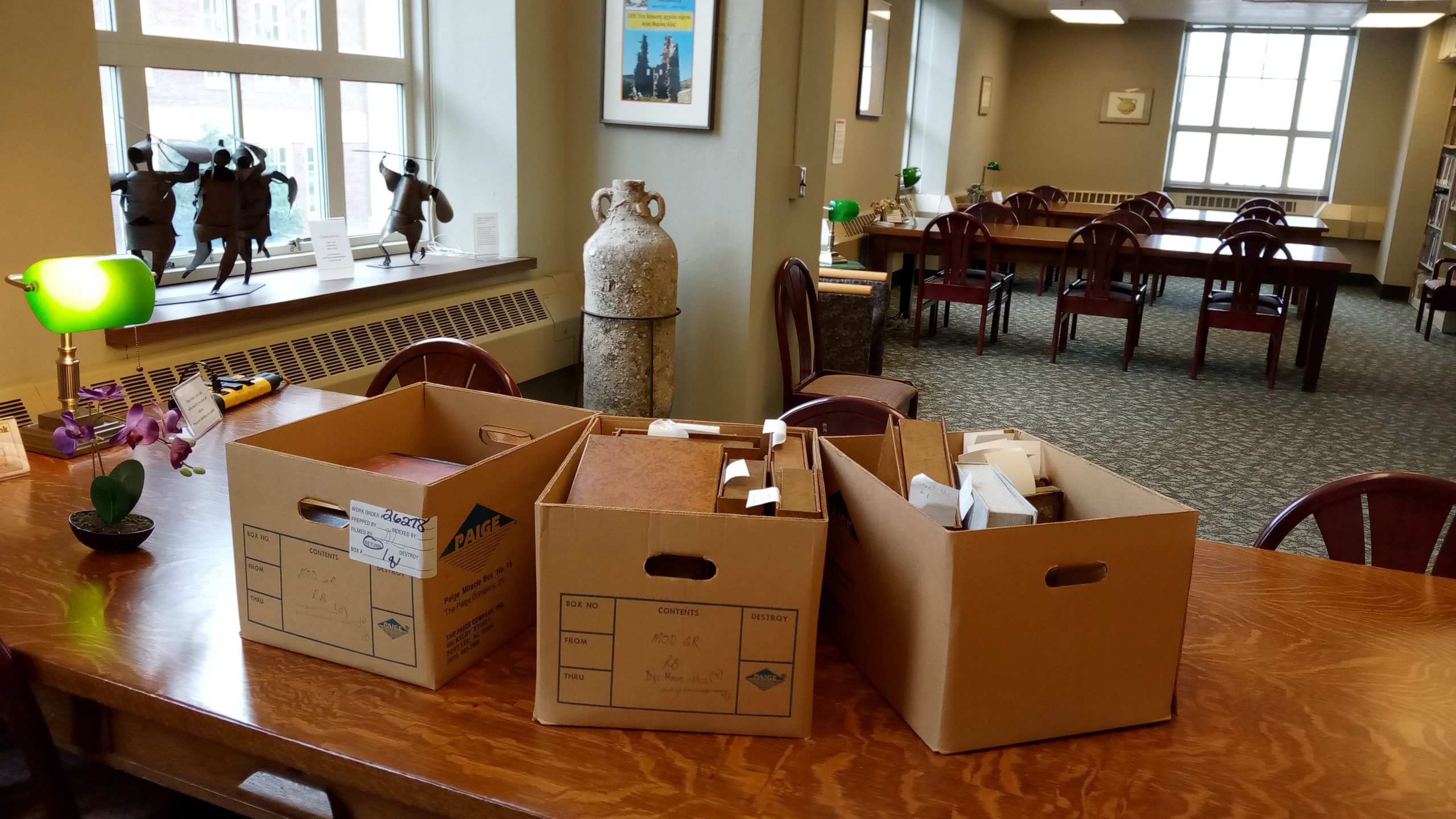
The boxes discovered in ARB also contain a dozen books of materials of the Karamanlides (Καραμανλήδες), Greek Orthodox Turkish-speaking people from the 13th century kingdom Karaman and Cappadocia regions of Turkey. These texts, written in Karamanli Turkish using the Greek alphabet, are rare. Most Karamanlides were expelled from Turkey as part of the Greek-Turkish population exchange following WWI.
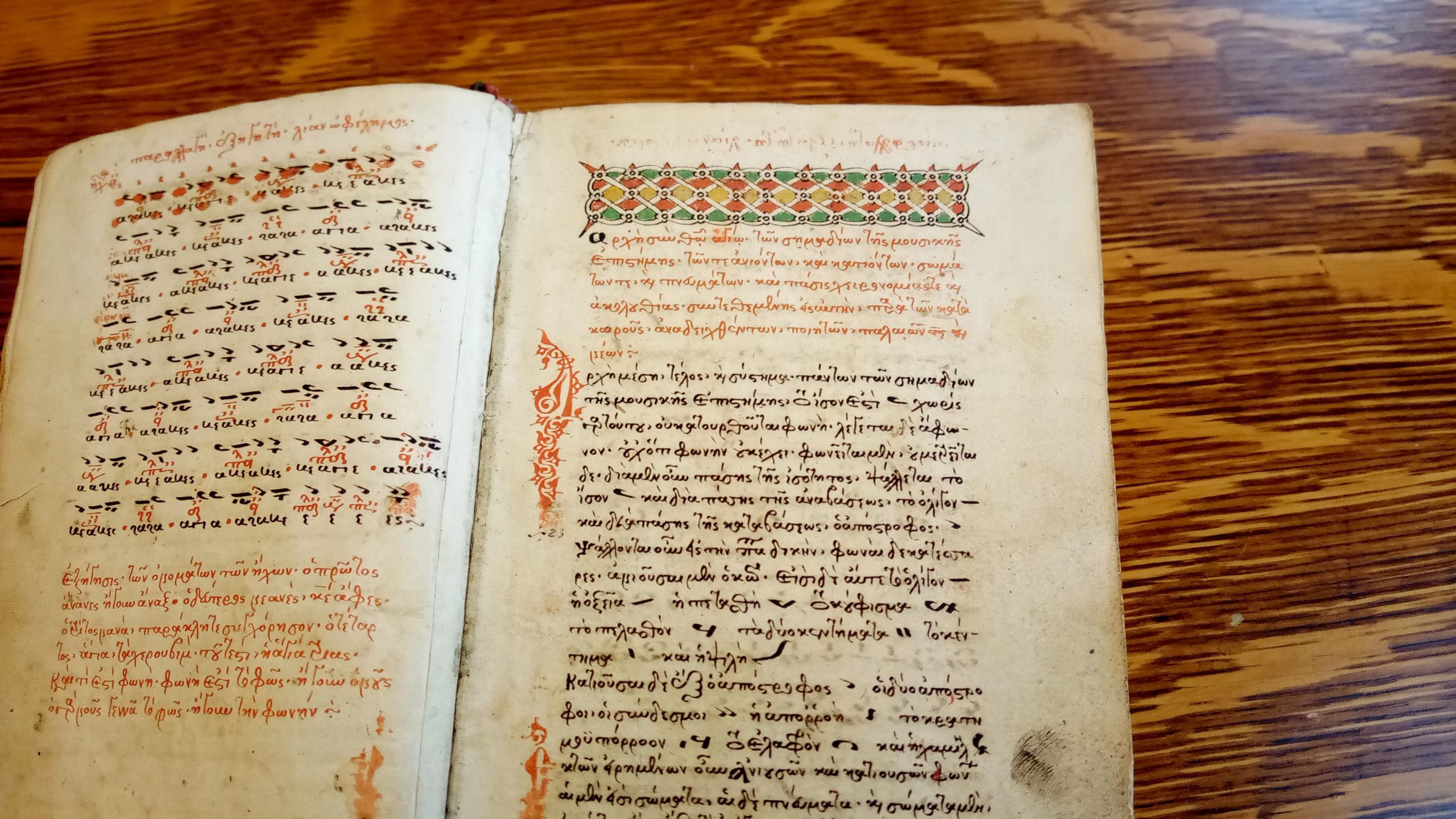
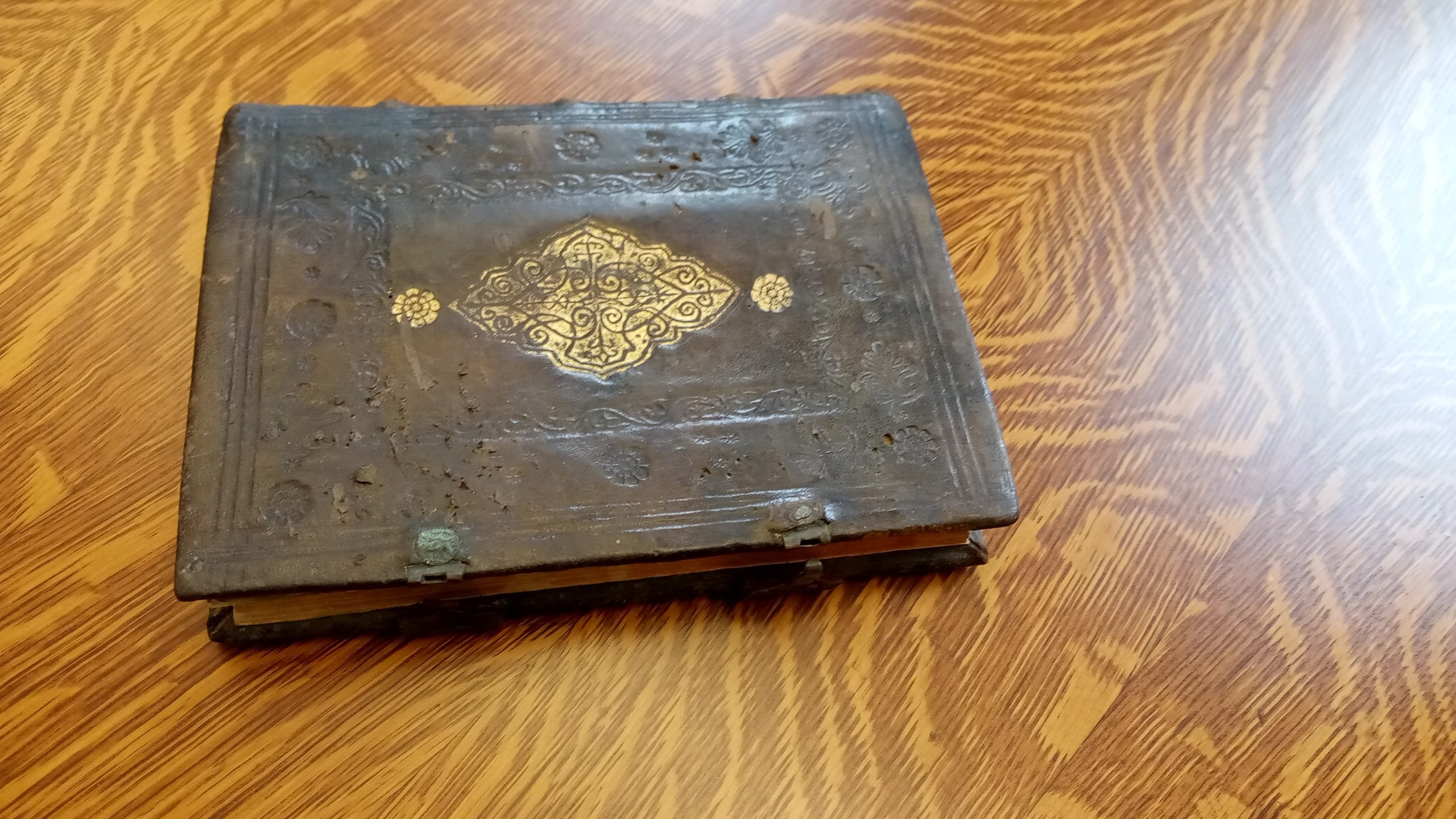
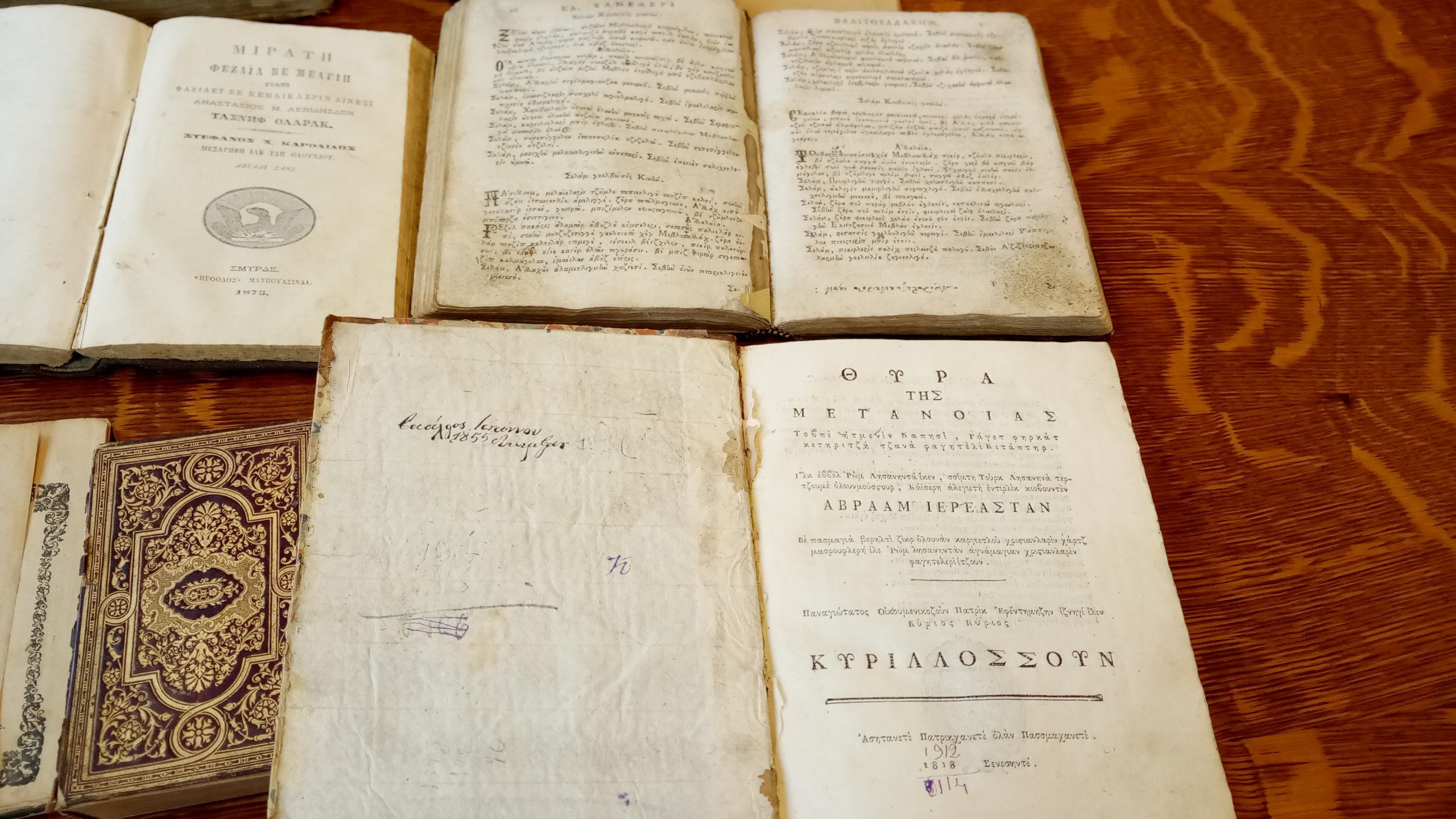
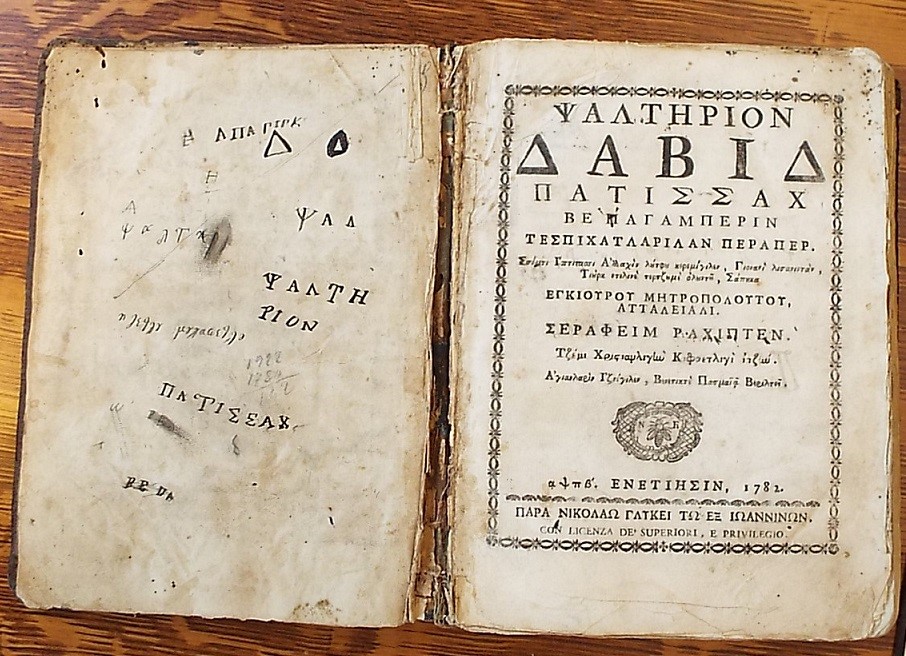
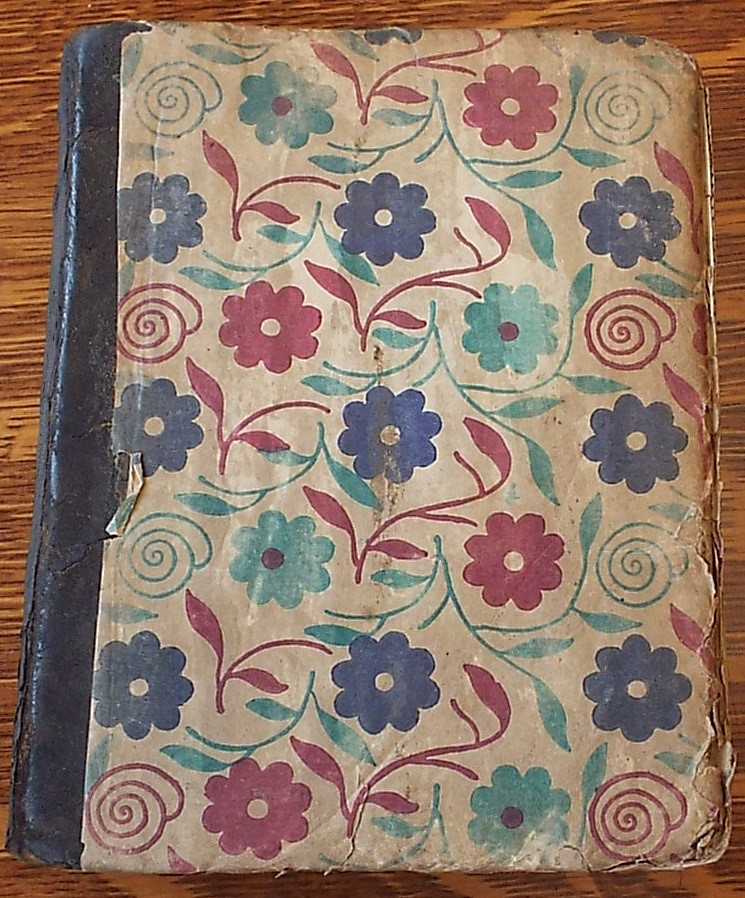
To learn more about Karamanlidika, you may want to consult the following:
- Balta, Evangelia. Miscellaneous studies on the Karamanlidika literary tradition. Istanbul: Iris, 2013. CLASS Stacks PL206.B35 2013
- Karamanlidika: Bibliographie analytique d’ouvrages en langue turque imprimés en caractères grecs. Sévérien Salaville and Eugène Dalleggio. Athens, 1958-1987. CLASS Stacks and Reference Z2841.S3
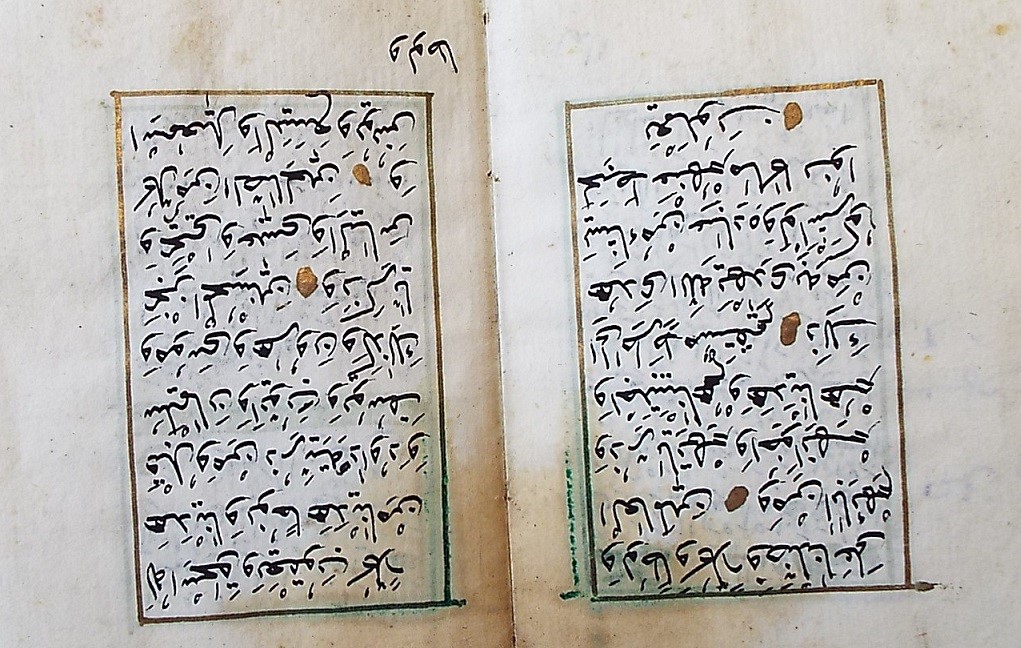
Other materials found in the boxes are 19th century texts in Arabic, Persian, and Ottoman Turkish. In addition, there are several manuscripts of Byzantine music.
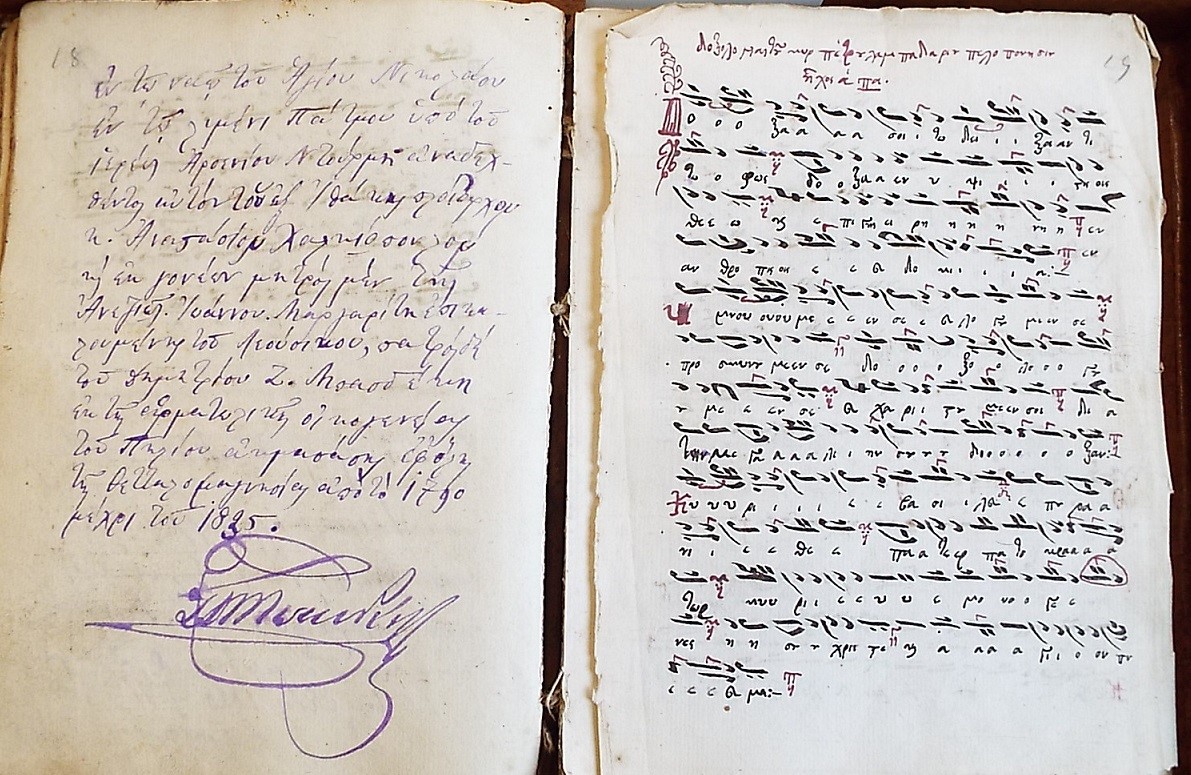
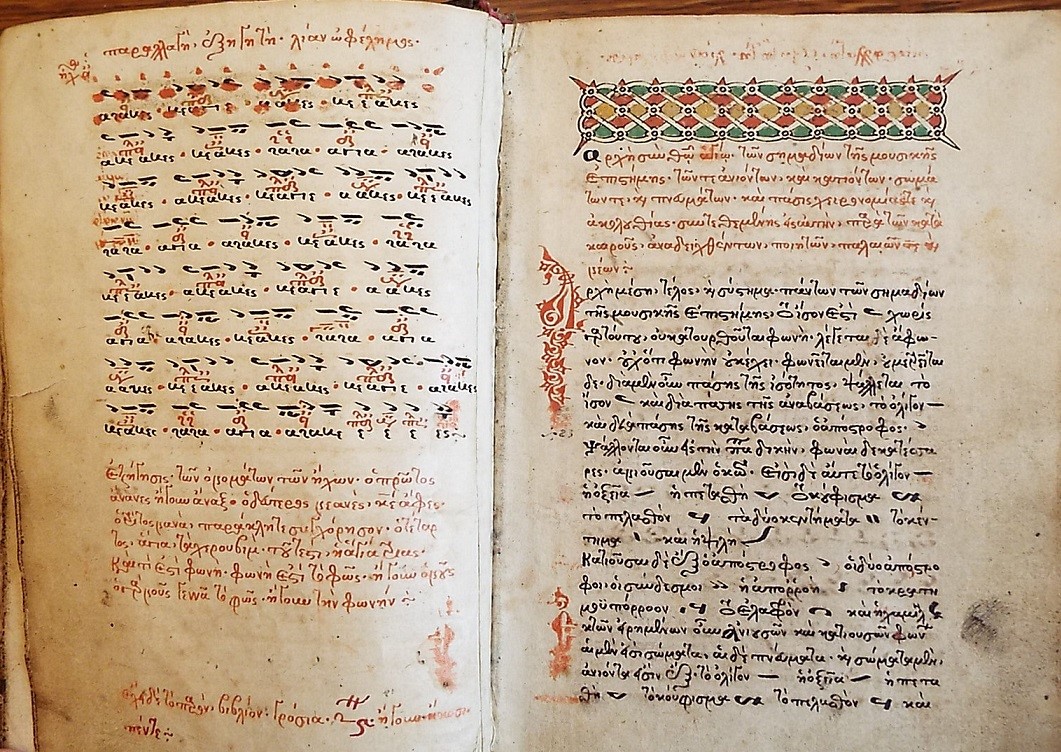
Supposedly, this collection also contained a codification of Turkish law pertaining to non-Muslims, and constitutions from Greek societies to promote education and help widows and orphans, etc., which have yet to be identified in our collection whether in the Classics Library or still in ARB. Other materials possibly belonging to this collection such as American and Greek propaganda pamphlets from the war and a 1943 mimeographed U.S./British report listing “Marconi” installations in Greece may have been interfiled with the book collection, but since no documentation of this was made, we are not able to track them down with certainty. The boxes also contain several intriguing original Greek texts from the 1800s, some earlier, most in the areas of religion and philosophy, including Balanos Vasilopoulos’ commentary on Hippocrates’ Aphorisms (“Ars longa, vita brevis” in reverse of the Greek “Ὁ βίος βραχύς, ἡ δὲ τέχνη μακρή”), possibly acquired in Asia Minor.
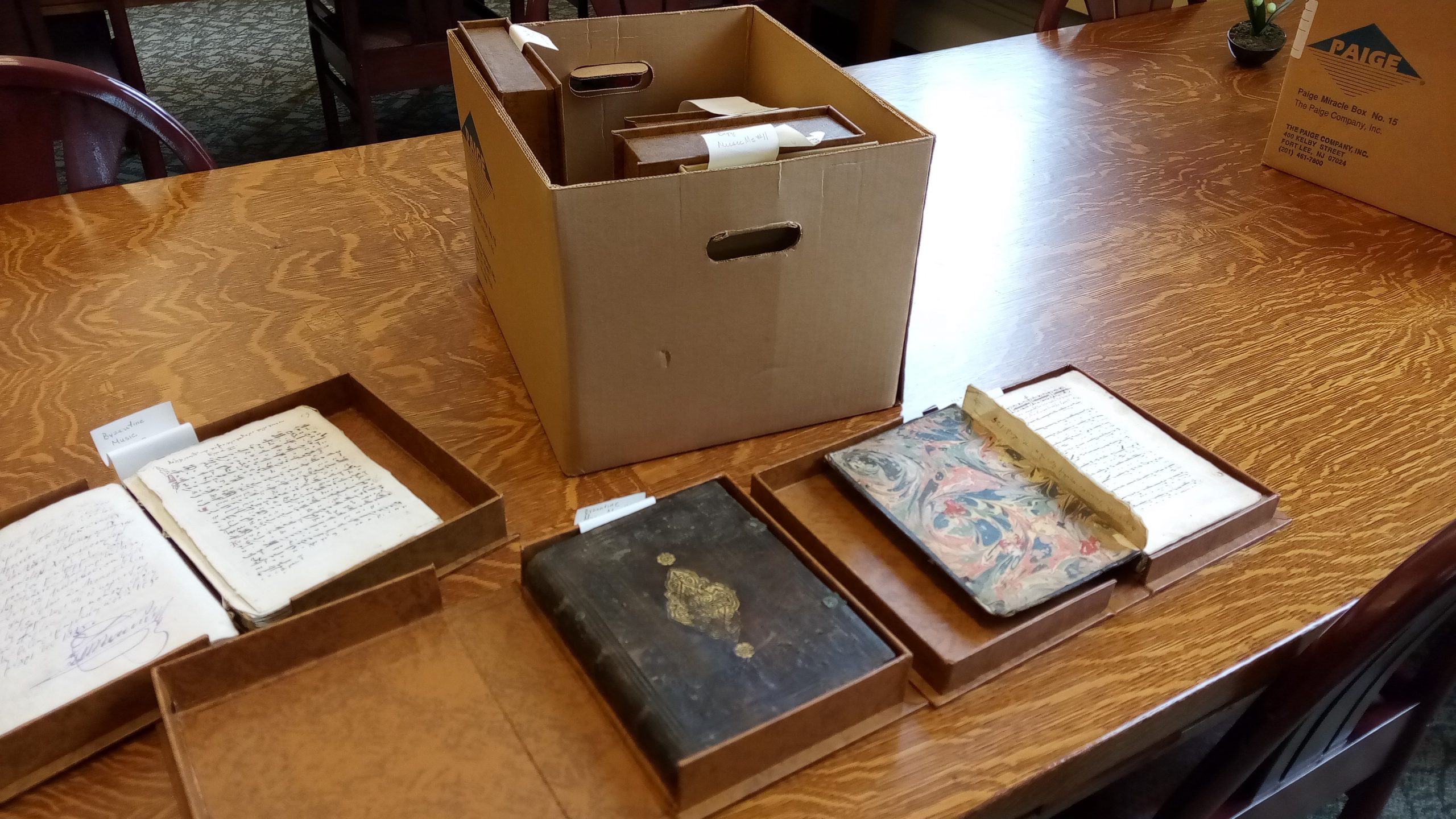
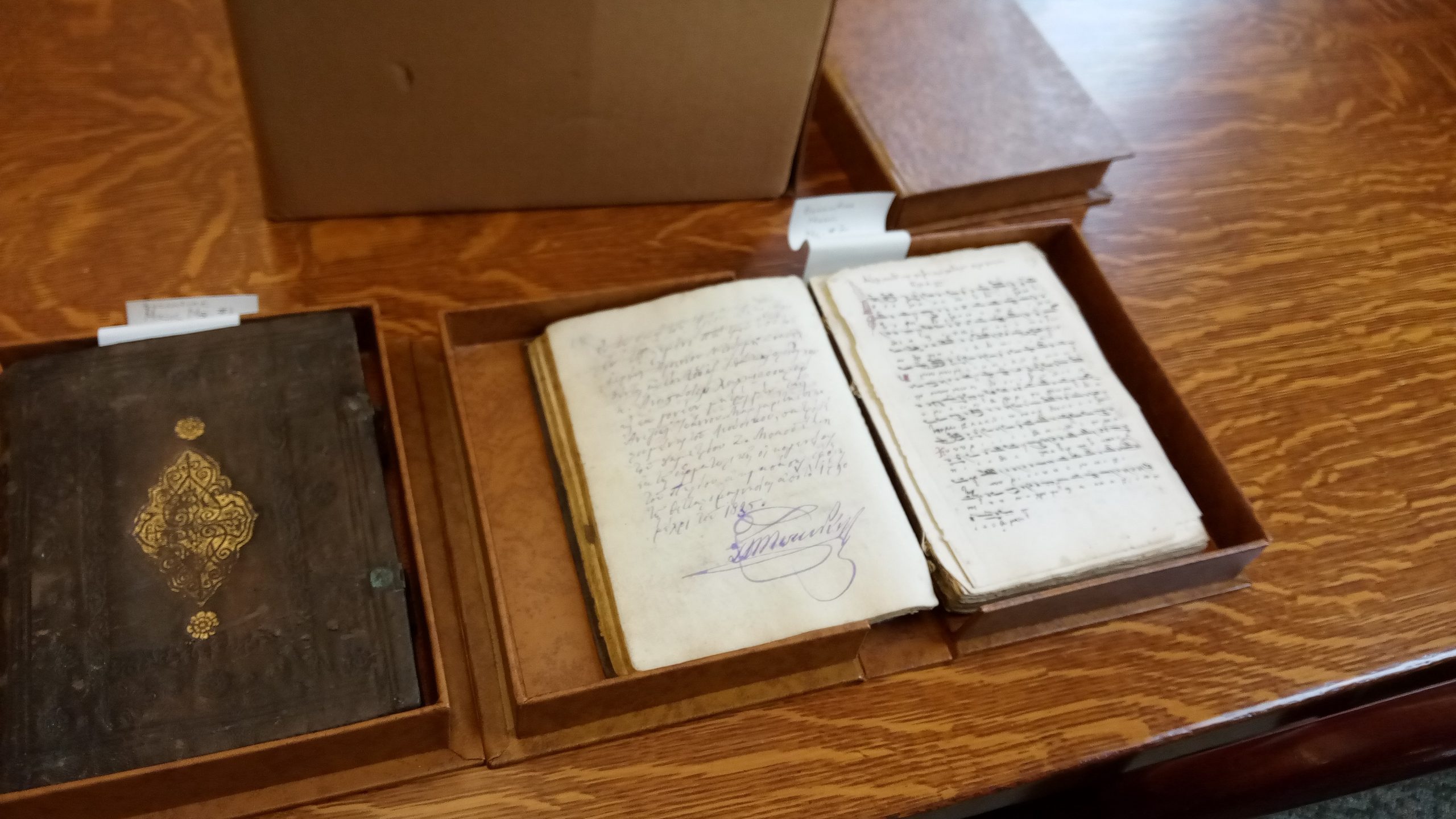
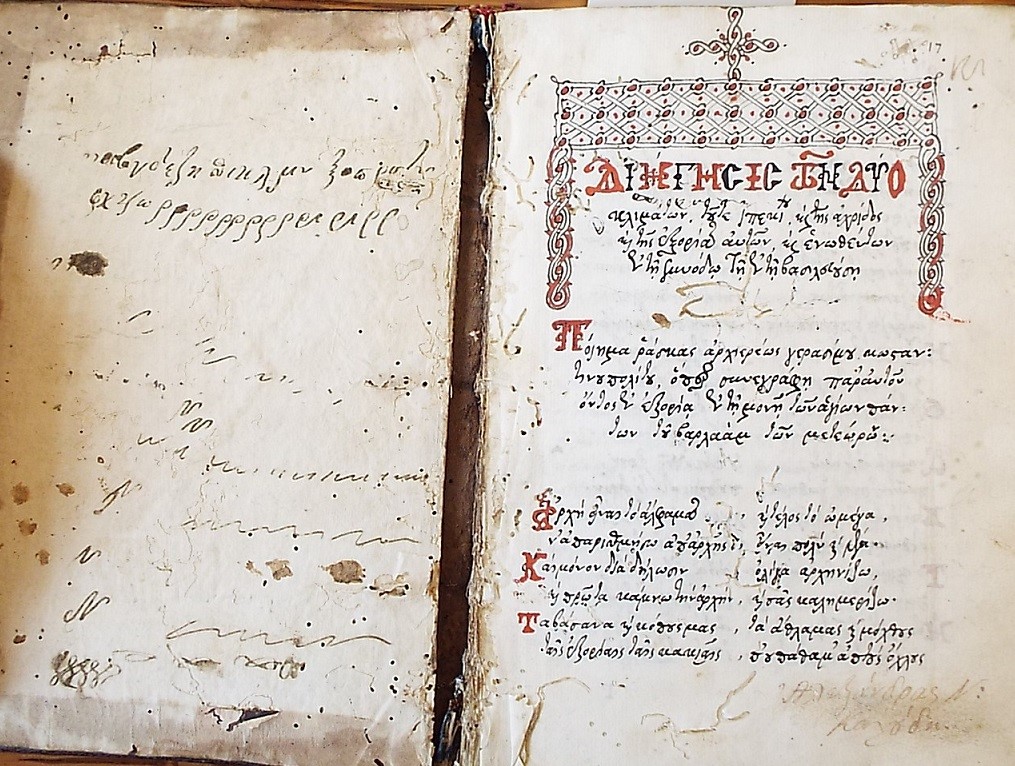
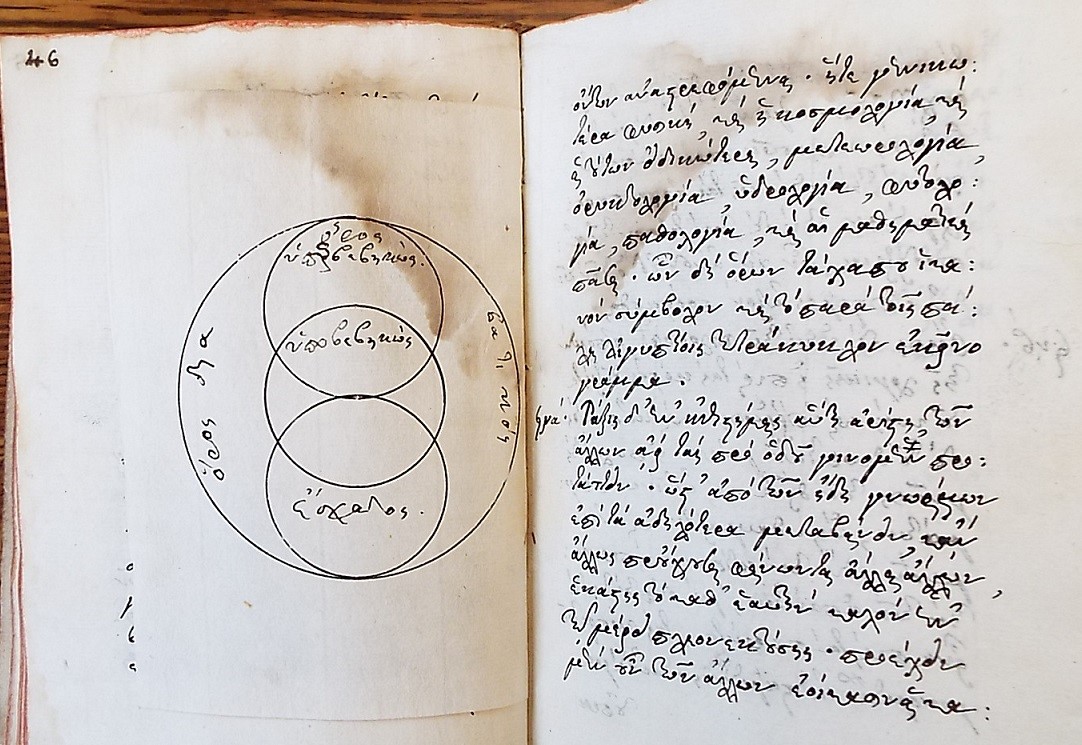
This fall, the Classics Library hopes to curate an exhibition on war and refugees in modern Greece, based on Professor Davis’ personal collection of documents and realia, also including some of the above-mentioned recent discoveries about which we hope to have additional information after more research. Many celebrations of Greek independence are taking place this year in Greece and elsewhere because of last year’s muted or canceled events due to Covid. For example, the Classics Library curated an exhibition in connection with the bicentennial last year, but few saw it. So this new exhibition will also acknowledge this milestone in addition to Greek and American, especially Cincinnati, involvement in the world wars and the aid work for Greece which followed.
